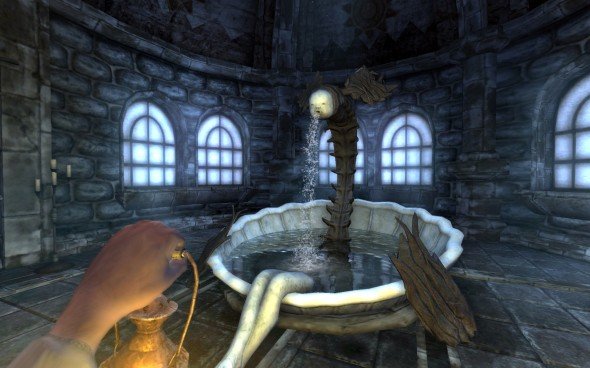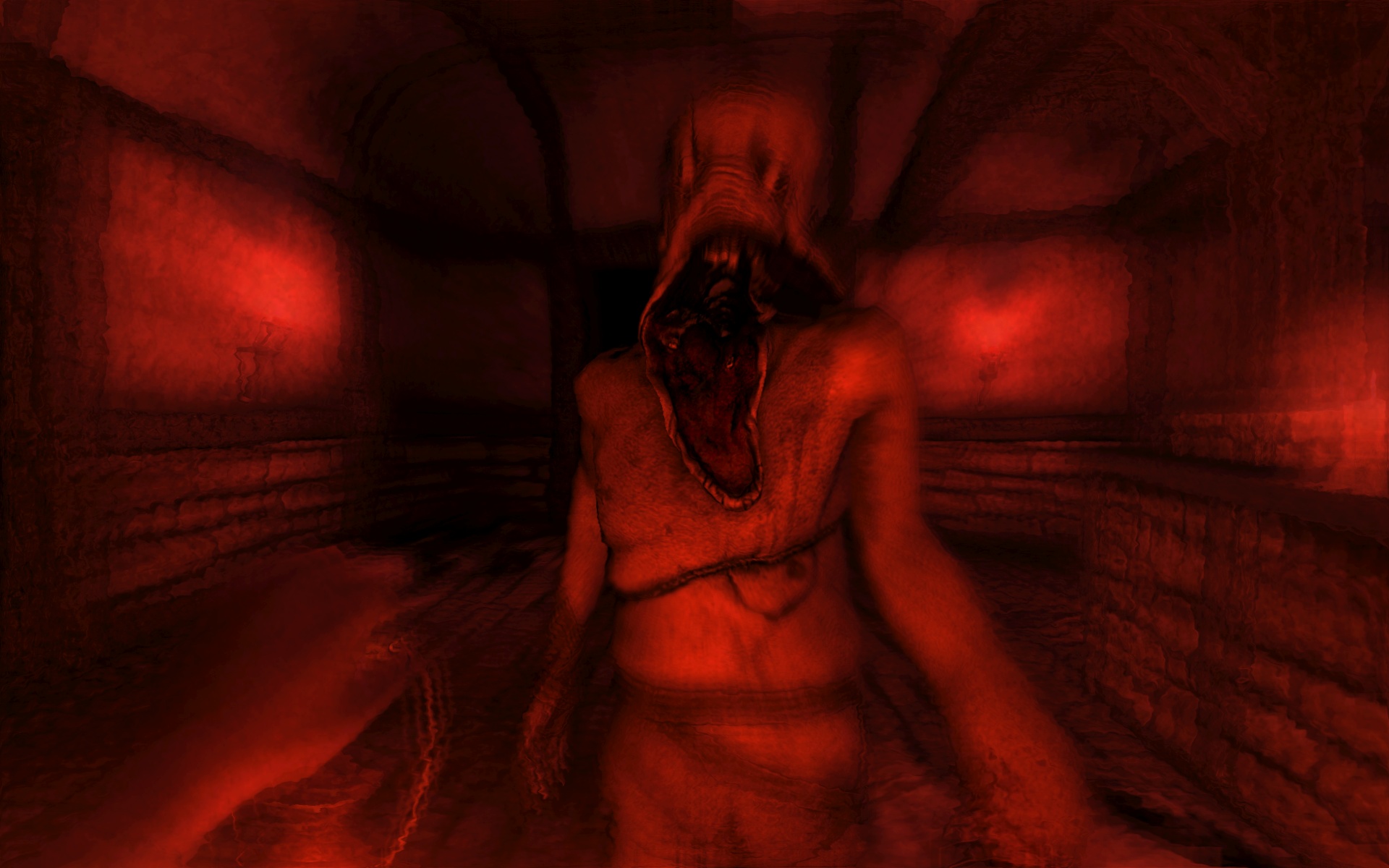Our Verdict
Rich in atmosphere and big on scares, Amnesia: The Dark Descent goes where survival-horror fears to tread.
PC Gamer's got your back
OK, I'm proper scared. I've just been stalked through a sewer by something I can't see, let alone fight.
The only thing that gave it away was the languid ker-splosh of its footsteps as it ranged around after me. Every time I lost my footing on the narrow path of tottering crates and other detritus and landed in the drink, a flurry of intense sploshing rose sharply in volume as it made for my meat. It was utterly, panicinducingly horrible. I made errors in judgement, I missed jumps, I clenched. When it was all over, I nearly had a little cry.
Amnesia does Lovecraft in the purest sense: it understands that the imagined far outweighs the known in its psychological punch, and it gives you enough audio and visual cues to imagine a very carnival of horrors. From the twisted brainpipes of Frictional games, the guys behind the Penumbra series, this is every part the worthy successor, with considerably higher production values, bags more atmosphere, and a deeper exploration of the parallel themes of horror and insanity. While these screenshots shout FPS, it shares more with point-and-click adventures than shooters. There's not a weapon in sight: it's all about the puzzles, exploiting the neat physics engine, combining items to apply to the environment, and hiding when the nasties come.
The story unfolds from a locus of zero knowledge, aside from one fact: your name is Daniel. You wake in a medieval castle, and finding a note you'd previously written for yourself, you discover you're here for a reason. In fact, you've been here for some time, and as the plot expands through further diary-notes and flashbacks, the unsavoury purpose behind your presence becomes apparent. You're also just a bit afraid of the dark. The whole place is graveyard-dim, but you collect tinder-boxes to light torches and candles, and oil for your lamp. Keeping the shadows at bay is a constant – and necessary – struggle.

Spend too long in the gloaming, and madness beckons. As Daniel's sanity starts to stutter, imagination plays merry hell. Insects skitter across your vision, the input-lag between mouse-gesture and action goes to hell, the ground lurches sickeningly, and you'll hear things – whispers, cries and horrid noises, one of which can only be described as someone pulling crabs apart.
Against this background, you learn of the unspeakable experiments that happened here, and your involvement with them, as something hideous dogs your steps. It's hard to talk about certain specifics without spoilers, but suffice it to say, there are scenes you'll recoil at. One area of the game is devoted to revealing the psychological and physical specifics of medieval torture methods; fascinating in a horribly suggestive way, and all, somehow, tied to your past. When it's not breathing down your neck, lurching after you or trying to eat your face, Amnesia shows you bad things and makes you feel dirty.
And that's its triumph: one of grisly atmosphere over genre convention, with tension and release in keen balance. It seems rude to pick holes – some of the vocal delivery, for example, lacks the credible touch, and occasionally, you'll have no idea what the puzzle you're working on is meant to achieve; you just have to keep trying things out. But it's well worth it, and a snip at £12.95. Despite its title, Amnesia remembers what the blockbusters of survival horror seem to have forgotten: how to horrify.
Rich in atmosphere and big on scares, Amnesia: The Dark Descent goes where survival-horror fears to tread.

Al's games-and-tech quilling began on PC Gamer Specials magazine in the year 2000, before moving on to PC Format and then out into game development. In the last 23 years he’s reviewed a bajillion games and assorted pieces of hardware, spent 13 years in game dev, built PCs, dry-stone walls, and ebikes, and logged 1000 hours in Fallout 76. His current obsessions are tiny PCs and sledgehammering every single object in Dysmantle into its constituent parts.


